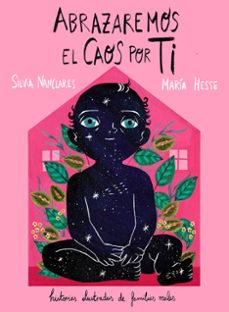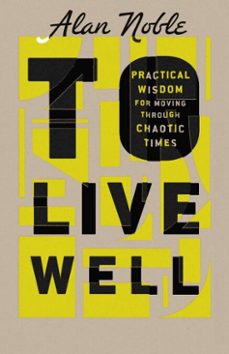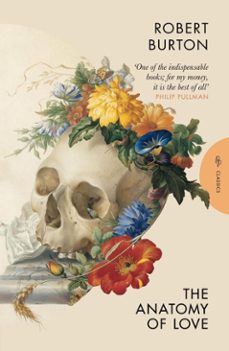Imprescindibles
Más vendidos Libros más leídos eBooks más leídos Todos los libros Todos los libros Autores destacados Series y sagas
Recomendados Libros recomendados Autores destacados Libros que inspiran Vidas con historia LGTBIQ+ English books
Ficción
Literatura Contemporánea Estudios literarios Clásicos Cuentos Poesía Teatro Libros de bolsillo Sagas literarias
Géneros literarios Novela romántica y erótica Novela negra Novela histórica Narrativa fantástica Novela de ciencia ficción Novela de terror Narrativa de humor Narrativa de viajes
No Ficción
Ciencias y tecnología Biología Ciencias Ciencias naturales Divulgación científica Informática Ingeniería Matemáticas Medicina Salud y dietas Formación Idiomas Estilo de vida Libros de Cocina Guías de viaje Narrativa de viajes Deportes Libros de Juegos Manualidades
Humanidades Autoayuda y espiritualidad Ciencias humanas Derecho Economía y Empresa Psicología y Pedagogía Filosofía Sociología Filología Biblioteconomía Estudios filológicos Estudios lingüísticos Estudios literarios Historia y crítica de la Literatura
Infantil
Juvenil
#Jóvenes lectores Narrativa juvenil Clásicos adaptados Libros Wattpad Libros Booktok Libros de influencers Libros de Youtubers Libros Spicy Juveniles Libros LGTBIQ+ Temas sociales Libros ciencia ficción Libros de acción y aventura Cómic y Manga Juvenil Cómic Juvenil Manga Shonen Manga Shojo Autores destacados Jennifer L. Armentrout Eloy Moreno Nerea Llanes Hannah Nicole Maehrer
Libros de fantasía Cozy Fantasy Dark academia Hadas y Fae Romantasy Royal Fantasy Urban Fantasy Vampiros y hombres lobo Otros Misterio y terror Cozy mistery Policiaca Spooky Terror Thriller y suspense Otros
Libros románticos y de amor Dark Romance Clean Romance Cowboy Romance Mafia y amor Romance dramatico Romance dramatico Romcom Sport Romance Otros Clichés Enemies to Lovers Friends to Lovers Hermanastros Slow Burn Fake Dating Triángulo amoroso
Cómic y Manga
Novela gráfica Novela gráfica americana Novela gráfica europea Novela gráfica de otros países Personajes, series y sagas Series y sagas Star Wars Superhéroes Cómics DC Cómics Marvel Cómics otros superhéroes Cómics Valiant
eBooks
Literatura Contemporánea Narrativa fantástica Novela de ciencia ficción Novela de terror Novela histórica Novela negra Novela romántica y erótica Juvenil Más de 13 años Más de 15 años Infantil eBooks infantiles
Humanidades Autoayuda y espiritualidad Ciencias humanas Economía y Empresa Psicología y Pedagogía Filosofía Historia Historia de España Historia Universal Arte Cine Música Historia del arte
Ciencia y tecnología Ciencias naturales Divulgación científica Medicina Salud y dietas Filología Estudios lingüísticos Estudios literarios Historia y crítica de la Literatura Estilo de vida Cocina Guías de viaje Ocio y deportes
Preventa de eBooks de Filosofía, Ética y moral
Te puede interesar
Categorias
Filtros
Del 1 al 4 de 4
Austral 9788427054806
La sabiduría práctica necesaria para sobrevivir en un mundo competitivo.El arte de la prudencia resume en trescientas frases una buena parte de la sabiduría práctica que permite triunfar en un mundo cada vez mas competitivo y hostil. Su brevedad y su modernisima organizacion en fragmentos independientes no solo favorecen una lectura casi permanente, sino que la convierten en la lectura optima para cualquier momento o lugar: para frecuentar los pasajes preferidos o para una respuesta rapida a una cuestion que no admite mas retrasos. Una obra que abarca las instrucciones, normas y explicaciones de la conducta humana. Es una suerte de universo en papel que aspira a proporcionar una cuidadosa guia de los resultados de los actos propios y de los ajenos.De forma abreviada, de manera muy sugerente, con la participacion del lector, El arte de la prudencia enseña que no existe un solo camino para la prudencia o para el exito. Sus textos, leidos de la manera que el lector prefiera (tal y como aparecen, en orden inverso, al azar, etc.), constituyen un consejero inagotable, siempre el mismo y siempre distinto ya que el lector es quien decide el camino que se debe llevar. Este libro que Baltasar Gracian escribio hace mas de trescientos años goza de plena vigencia, por su enfoque practico y por su atencion a lo concreto.
Ver más
eBook
Galaxia Gutenberg 9791388019104
Estamos acostumbrados a ser testigos de violencias extremas, torturas, violaciones y humillaciones en todas las formas del arte. A menudo la crueldad allí desplegada se nos presenta como espectáculo o como propaganda de las ideas hegemonicas. Sin embargo, hay una crueldad que no satisface el morbo del espectador ni corteja sus valores, sino que lo confronta con sus hipocresias y sus miserias. Es etica en el sentido de que pretende una transformacion del lector, aunque tenga que agredirle para ello y atentar contra sus certidumbres, adentrandose en ambitos que rondan el tabu, como la violencia despiadada y el sexo desaforado. La etica de la crueldad, que recibio varios premios y ha sido traducida a diversos idiomas, defiende una literatura contraria a la cultura del espectaculo y a la asepsia posmoderna, una literatura que aborrece lo inocuo y lo complaciente. E ilustra su propuesta teorica con una original exploracion de novelas de Bataille, Canetti, Martin-Santos, McCarthy, Kristof, Onetti y Jelinek, autores crueles cada uno a su manera. Despues de leerlos, no se puede seguir viviendo como antes de hacerlo. Y lo mismo le sucedera a quien lea este ensayo, que ha sido revisado y ampliado por su autor para esta edicion.
Ver más
eBook
NOBLE, ALAN
IVP 9781514002254
You were told to live a meaningful life. But no one ever told you how. Our lives are shaped by contradictions. Competing voices tell us who to be, what to want, and how to live. The result? A fragmented moral imagination. Were handed a thousand broken messages and left to cobble together something resembling a life. But instead of clarity, we get exhaustion. Instead of wisdom, we get anxiety.This leaves you asking yourself How can I get through when I feel alone and confused? How can I live well in this broken and chaotic world? In To Live Well, Alan Noble shows you how you can not only endure but flourish in life. Through exploring the seven virtues of prudence, justice, fortitude, temperance, faith, hope, and love, youll learn how to choose gracefully, act justly, suffer steadfastly, live moderately, believe soundly, hope resolutely, and love rightly. This book wont give you a ten-step plan to fix everything. It doesnt promise clarity overnight. But it will invite you into something deeper: an ancient, time-tested path of habits of heart and mind that shape who we are and how we live.With honesty, theological depth, and a mentors heart, Noble names your confusion and offers an antidotenot by escaping the mess but by learning how to live faithfully within it. If youve ever longed for something solid in a world that just wants to sell you more temporary stuff, To Live Well is a good place to begin.
Ver más
eBook
Pushkin Press Classics 9781805333340
Dryness, paleness, waking, sighing, despair, frenzy, death: loves repercussions can be dire indeed. Perhaps that is why Robert Burton devoted the largest part of his pioneering 17th-century psychological work, The Anatomy of Melancholy, to this supreme passion. Edited to offer the modern reader easier access to this classic text, this abridged version preserves all the fantastic variety of the original, as Burton knits together stories and quotations drawn from millennia of European literature in order to understand loves causes, consequences, and cures.We encounter gods and goddesses, ancient kings and queens, lascivious monks and pure-hearted shepherds, marriages happy and unhappy, allurements natural and unnatural, and, most importantly, many cures for love-melancholy, from the obvious to the arcane. Intricate yet commonsensical, learned yet earthy, and twinkling throughout with ironic warmth, Burtons masterpiece speaks to the deepest concerns of the human heart as well today as it did four centuries ago.
Ver más
eBook
Del 1 al 4 de 4





























